Jaya Bhaduri
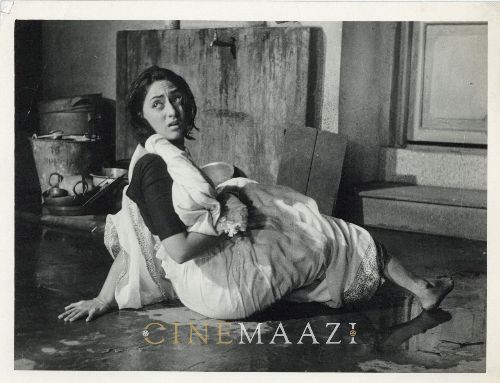
Subscribe to read full article
This section is for paid subscribers only. Our subscription is only $37/- for one full year.
You get unlimited access to all paid section and features on the website with this subscription.
Not ready for a full subscription?
You can access this article for $2 , and have it saved to your account for one year.
- Born: 9 April, 1948 (Jabalpur, Madhya Pradesh)
- Primary Cinema: Hindi
- Parents: Tarun Kumar Bhaduri, Indira
- Spouse: Amitabh Bachchan
- Children: Abhishek Bachchan , Shweta Bachchan Nanda
The poster girl of middle cinema, Jaya Bhaduri lit up the screen when she made her appearance in Hrishikesh Mukherjee’s Guddi (1971) as 14 year old Khushboo. She is known for her simplistic image, straightforward attitude and the complex roles she portrayed throughout her career.
She was born on 9 April, 1948 in Jabalpur, Madhya Pradesh to the popular writer and journalist Tarun Kumar Bhaduri and Indira. She was enrolled in St Joseph’s Convent in Bhopal. At a young age of 15, she made her debut in Satyajit Ray’s classic Mahanagar (1963). A gold medalist from Film and Television Institute of India (FTII), she completed her education and was trained under the eminent acting coach Roshan Taneja. According to an anecdote shared in Taneja’s memoir, he recalls holding an audition in 1968 where he first met Bhaduri. She came with the impressive resume of working with a revered filmmaker like Ray, charmed them with her performance and then left an impression with an additional performance of an emotionally charged scene of a mother carrying her dead child in arms. When Taneja shortlisted the names from the audition, it was no surprise that Jaya Bhaduri featured in it. She also appeared in a short film called Suman during her FTII days.
At first, she considered using just her first name “Jaya” as her stage name, but after much back and forth, she resorted to going with her full name as “Jaya Bhaduri” carried more weight and gravitas. After her marriage, she adopted the Bachchan surname.
Mukherjee’s character Khushboo in Guddi was tailor-made for her, where she played a film enthusiast and a fan of Dharmendra. The film ascribed the girl-next-door image to Jaya Bhaduri, which was so central to her persona despite her attempts to shift from this when she played a glamour girl in Jawani Diwani (1973) and a grey character in Anamika (1973). She had a long and successful collaborative partnership with Mukherjee, appearing in several of his other films such as Bawarchi (1972), Abhimaan (1973), Chupke Chupke (1975), and Mili (1975). Apart from Mukherjee, she often acted in other middle cinema filmmakers such as Gulzar (Koshish and Parichay, 1972), and Basu Chatterjee (Piya Ka Ghar, 1972).
Her performance in Uphaar (1971) directed by Sudhendu Roy, where she starred opposite Swaroop Dutt was appreciated for the thoughtful portrayal from a young girl to a mature woman in the character arc. She won a Filmfare Special award for this performance in 1972. It was however her performance in Anamika as the spontaneous, and flirtatious Anamika that stands out from her career of the pure-hearted girl.
Gulzar’s Koshish (1972) starring Sanjeev Kumar alongside her saw her play a deaf character which was a learning experience for her and left an indelible impression on her conscience. This experience led her to venture into social work. She worked with Indian Society for the Rehabilitation of the Handicapped for 20 years or more. The organization helps differently-abled children, provides them with training them and helps with scholarships.
The first film that introduced Amitabh Bachchan and Jaya Bhaduri as a pair was Bansi Birju (1972) and B R Ishara’s Ek Nazar (1972). The successful pairing was seen in several other box office hits such as Zanjeer (1973), Abhimaan, Chupke Chupke, Sholay (1975), and the controversial Silsila (1981). She tied the knot with Amitabh Bachchan in 1973 and the couple has been through everything life and fame have thrown their way since. The couple has two children, Shweta Bachchan Nanda and Abhishek Bachchan. She took a hiatus from acting for 18 years to raise her children and support her husband in his endeavors.
Jaya Bhaduri has always maintained a professional ethic throughout her career, and despite her training in method acting, she approached her characters with an instinct. The natural flare to her craft is a result of this instinctive acting. She has admired Geeta Bali, Meena Kumari and Waheeda Rehman’s performance under Guru Dutt’s direction for their effortlessness.
She made a comeback to acting with Govind Nihalani’s Hazar Chaurasi ki Maa (1998) and won a Filmfare Special Award for this film as well. The second innings of her career include films such as Fiza (2000), Kal Ho Na Ho (2003), Laga Chunari Mein Daag (2007), Drona (2008), Meherjaan (2011), and Ki & Ka (2016). The acclaimed 2011 film Meherjaan was a Bangladeshi love story that had the atrocities of the 1971 Bangladeshi war as the backdrop of the narrative.
She had a successful political career as a representative of Samjawadi Party in the Rajya Sabha for four terms. She also served as a chairperson of Children’s Film Society but was disappointed with the kind of bureaucratic system at place.
Jaya Bhaduri has been awarded with 9 Filmfare Awards, three of which are fall in the Best Actress category for her performance in and Abhimaan, Kora Kagaz (1975), and Nauker (1980). She also won thrice in the Supporting actress category for Fiza (2001), Kabhi Khushi Kabhi Gham (2002), and Kal Ho Na Ho (2004). She won two Filmfare Special Awards and the Lifetime Achievement Award in 2007. In 1992, she was awarded with Padma Shri by the government of India.
-
Filmography (37)
SortRole
-

Kal Ho Naa Ho 2003
-

Fiza 2000
-
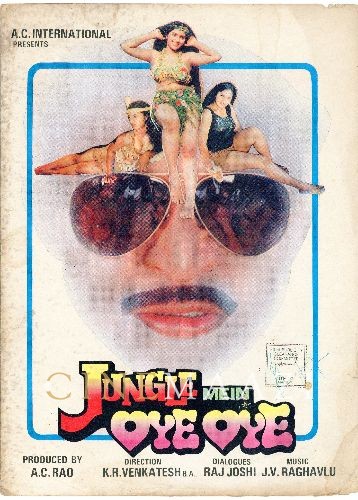
Jungle Mein Oye Oye 1990
-
Silsila 1981
-
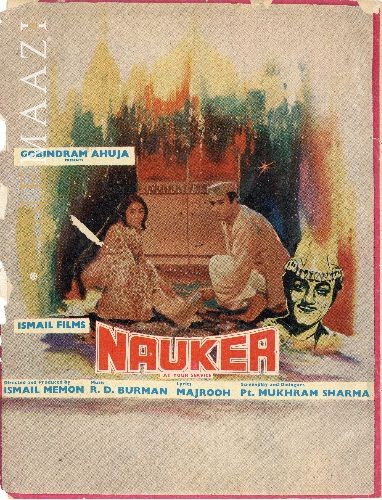
Nauker 1979
-
Abhi To Jee Lein 1977
-
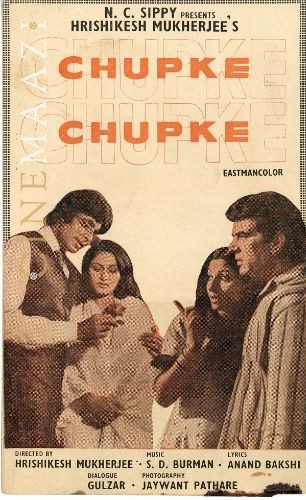
Chupke Chupke 1975
-

Mili 1975
-
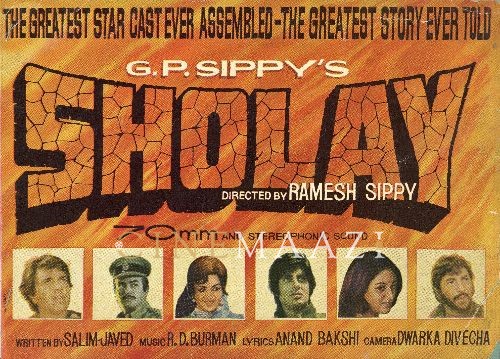
Sholay 1975
-

Kora Kagaz 1974
-
Koraa Kaagaz 1974
-






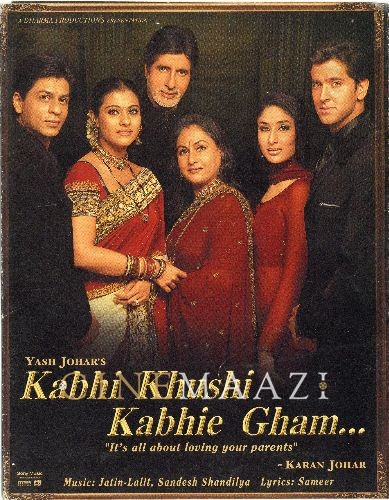




.jpg)



